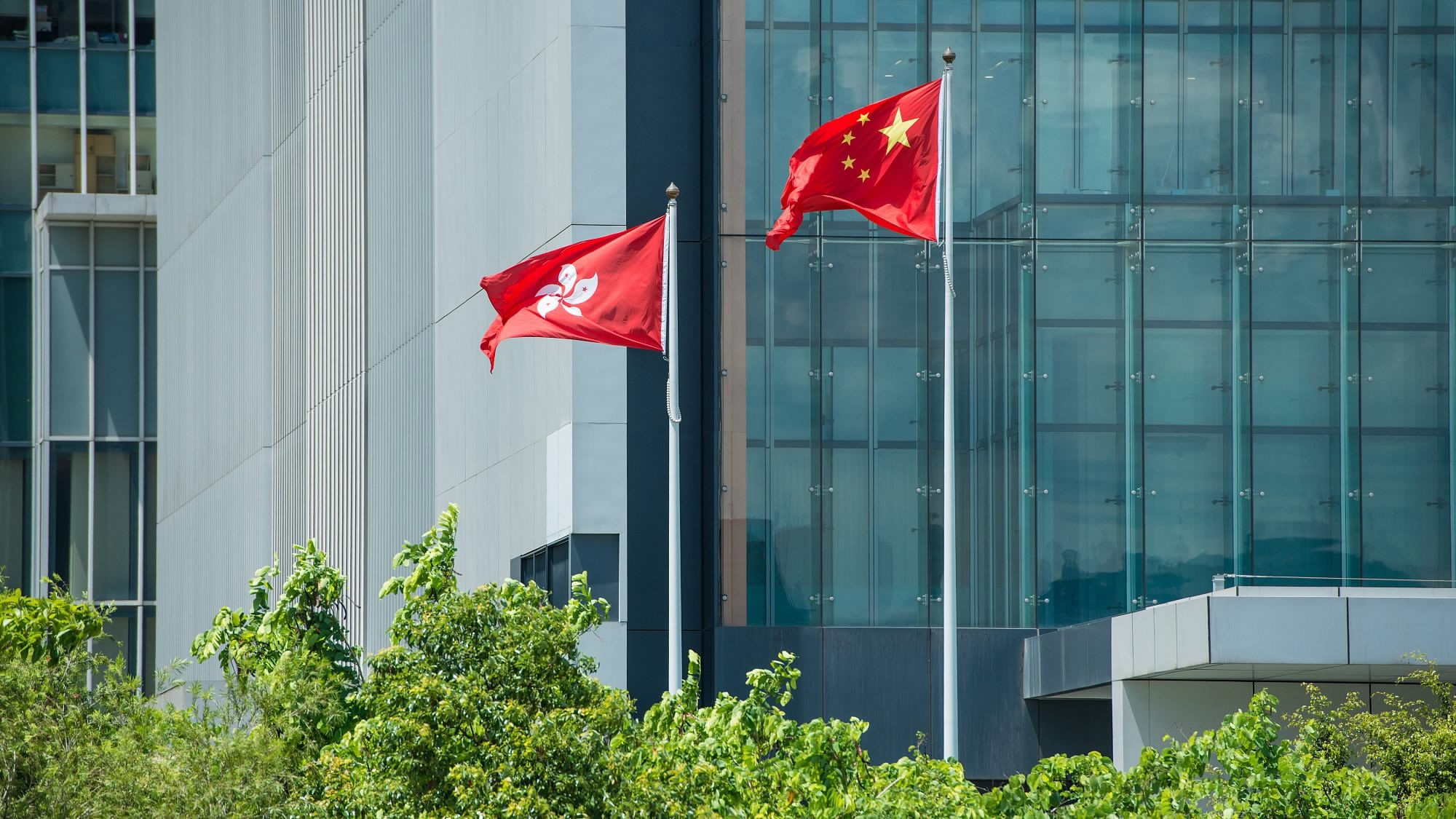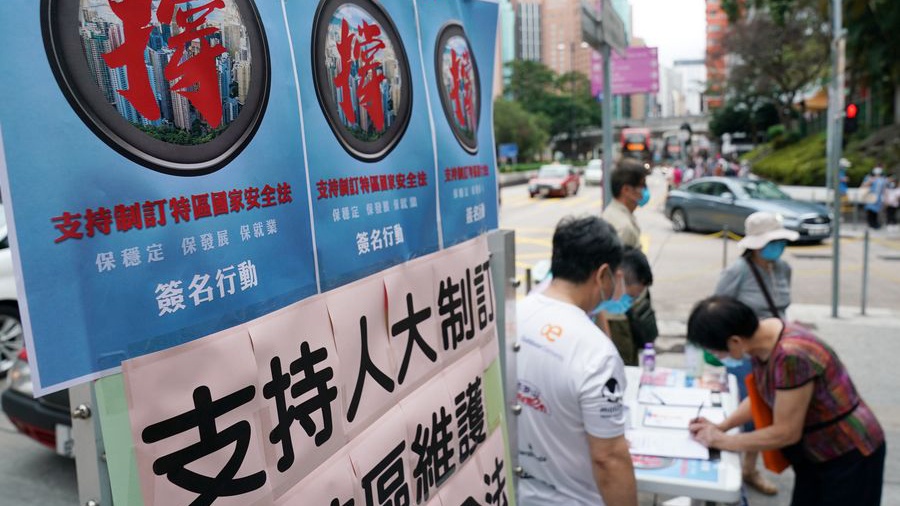
Editor's note: Iram Khan is a Pakistan-based commentator on international affairs. The article reflects the author's opinions, and not necessarily the views of CGTN.
After riots and unrest engulfed Hong Kong for almost a year, China introduced a crucial piece of legislation aimed at bringing stability back to the global financial hub. Termed the Law of the People's Republic of China on Safeguarding National Security in the Hong Kong Special Administrative Region (HKSAR), it outlaws secession, subversion and terrorist activities.
This has not gone down well with certain countries. The UK has taken it upon itself to ensure the protection of rights of the elements that had made life miserable for citizens of Hong Kong. Foreign Secretary Dominic Raab announced a series of unilateral steps Monday in British parliament while, ironically, accusing China of violating international obligations.
The most prominent part of the tirade was the suspension of a treaty with Hong Kong that allowed the extradition of suspects accused of crimes in each other's territories. The BBC, while explaining the likely reason behind the move, stated that the UK fears anyone extradited to Hong Kong might be sent to the Chinese mainland.
The fear stems from a lack of knowledge about the provisions of the national security law which state that local suspects will be tried in Hong Kong. Handling of cases by the Supreme Court will be only for the rare ones which the city's Basic Law might fall short of addressing. In effect, this is a strengthening of the judicial system rather than its sidelining.
Raab, in the same breath, defended his government's surprise reversal from permitting Chinese telecom company Huawei to build the UK's next-generation 5G communication networks. Banning Huawei is believed to have been done after buckling under persistent pressure from the U.S.
Forcing it to backtrack, the U.S. meddled in the UK's domestic matters and trampled its sovereign right of taking independent decisions. Adjudging this as a norm, now the UK is raising objections to Hong Kong's national security law which also happens to be a purely domestic matter of China.
But Raab or his government should not expect China to buckle under pressure. Because a steadfast commitment to upholding its sovereignty allowed China to rise and a diminishing will to stand up to foreign pressure caused the UK to recede from its global standing.
The British proposals also disregard David Cameron's vision of a "golden era" of bilateral relations with China announced during his premiership. A complete U-turn within five years dents the credibility of the pledges the UK has made with all of its allies.

A resident signs in a street campaign in support of national security legislation for the Hong Kong Special Administrative Region in Hong Kong, south China, May 23, 2020. /Xinhua
A resident signs in a street campaign in support of national security legislation for the Hong Kong Special Administrative Region in Hong Kong, south China, May 23, 2020. /Xinhua
To echo the words of Raab, China and the whole world are watching. They are watching how the UK is ceding its sovereign decision-making to the whims of an incoherent and inconsistent administration across the Atlantic. The announcements by the British Foreign Secretary coincide with the visit of U.S. Secretary of State Mike Pompeo to London, giving credence to the notion that the extradition treaty was suspended under U.S. pressure.
Questions are rising whether the past colonizer has itself been colonized under a lopsided relationship – with shackles stronger than the ones Raab announced his country will not be exporting to Hong Kong. And the smoke grenades and other riot control devices that he also said won't be exported to Hong Kong are, anyways, much less in demand ever since the return of stability.
With the suspension of the extradition treaty, there may be a possibility that the UK turns into a destination for criminals attempting to flee Hong Kong. After earning the repute of self-centeredness on Brexit and of timidity on succumbing to the U.S., the label of a haven for absconders has to be the last thing the UK prefers.
And if the situation does turn out like that, how will the British public react to the inflow? What effects will it have on the British society? And how prepared is the British government? Of course, these questions were not considered when Raab was attempting his grandstanding.
In a hint of the upcoming situation, Google, Facebook and Twitter have stopped processing Hong Kong's requests for user data. This has the potential of making these platforms hotbeds of illicit activity as criminals can operate there with impunity.
Chinese Ambassador to the UK, Liu Xiaoming, very appropriately responded to the illegality of the British moves. As only the UN has the mandate to impose sanctions, he warned that any such action will have a "resolute response." While he did not want to see things deteriorating to that level, he did advise that the UK's foreign policy does not need to dance to the tune of Americans.
(If you want to contribute and have specific expertise, please contact us at opinions@cgtn.com.)